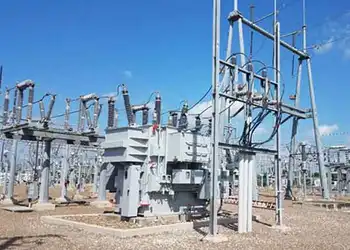FERC DER Aggregation advances debates over distributed energy resources as Congress presses action on Order 841, grid resilience, and wholesale market access, including rooftop solar, storage, and virtual power plant participation across PJM and ISO-NE.
Key Points
FERC DER Aggregation enables grouped distributed resources to join wholesale markets, providing capacity and flexibility.
? Opens wholesale market access for aggregated DER portfolios
? Aligns with Order 841, storage, and grid resilience goals
? Raises jurisdictional questions between FERC and state regulators
The Monday letter from Congressional Democrats illustrates growing frustration in Washington over the lack of FERC action on multiple power sector issues, including the aging U.S. grid and related challenges.
Last May, after the FERC technical conference, 16 Democratic Senators wrote to then-Chairman Kevin McIntyre urging him to develop guidance for grid operators on aggregated DERs.
In July, McIntyre responded, saying that FERC was "diligently reviewing the record," but the commission has taken no action since.
Since then, "DER adoption and renewable energy aggregation have continued to grow," House and Senate lawmakers wrote in their identical Monday letters, "driven not only by state and federal policies, but consumer interest in choosing cost-competitive technologies such as rooftop solar, smart thermostats and customer-sited energy generation and storage, reflecting key utility trends in the sector."
The lawmakers wrote they were "encouraged" by FERC Chairman Neil Chatterjee's comments in June 2018, writing that he "specifically cited the role DERs will play in our continued grid transition."
In that speech at the S&P Global Platts 2018 Transmission Planning and Development Conference, Chatterjee noted "growing interest" in non-transmission alternatives, including "DERs and storage."
"How the Commission treats filings associated with those first-of-kind projects could prove an important factor in investors’ assessments of whether similar non-traditional projects are bankable or not — and more broadly signal whether FERC is open to innovation in the transmission sector,” he said.
In addition to the DER order and rehearing decision on Order 841, FERC has multiple other power sector initiatives that have not seen official action in months, even as major changes to electricity pricing are debated by stakeholders.
The highest profile is its open proceeding on grid resilience, set up last January after FERC rejected a coal and nuclear bailout proposal from the Department of Energy. In October, the CEO of the PJM Interconnection, the nation’s largest wholesale power market, urged FERC to issue a final order in the docket, calling for "leadership" from the commission.
Chatterjee, however, has not indicated when FERC could decide on the case. In December, Commissioner Rich Glick told a Washington audience he is "not entirely sure where the chairman wants to go with that proceeding yet."
Outside of resilience, FERC also has open reviews of both its pipeline certificate policy and implementation of the Public Utilities Regulatory Policy Act, a key law supporting renewable energy. McIntrye set those reviews in motion during his tenure as chairman, but after his death in January the timing of both remains unclear.
In recent months, Chatterjee has also delayed FERC votes on major export facilities for liquefied natural gas and a political spending case involving PJM after impasses between Republicans and Democrats on FERC.
Two members from each party currently sit on the commission. That allows Democrats to deadlock commission votes on natural gas facilities and other issues — a partisan divide on display this week when they clashed with the chairman over offshore wind.
As the commission considers final guidance on DERs, the boundaries of federal jurisdiction are likely to be a key issue. At the technical conference, states from the Midcontinent ISO argued FERC should allow them to choose whether to let aggregated DERs participate in retail and wholesale markets. Other states argued the value proposition of distributed resources may rely on that sort of dual participation.
Despite the lack of action from FERC, some grid operators are moving forward with aggregated distributed resources in New England market reform efforts and elsewhere, demonstrating momentum. Last week, a residential solar-plus-storage aggregation cleared the ISO-NE capacity auction for the first time, committing to provide 20 MW of capacity beginning in 2022.
On the Senate side, Sens. Sheldon Whitehouse, R.I., and Ed Markey, Mass., led the letter to FERC. In the House, Reps. Peter Welch, Vt., and Mike Levin, Calif., led the signatories.
Related News












